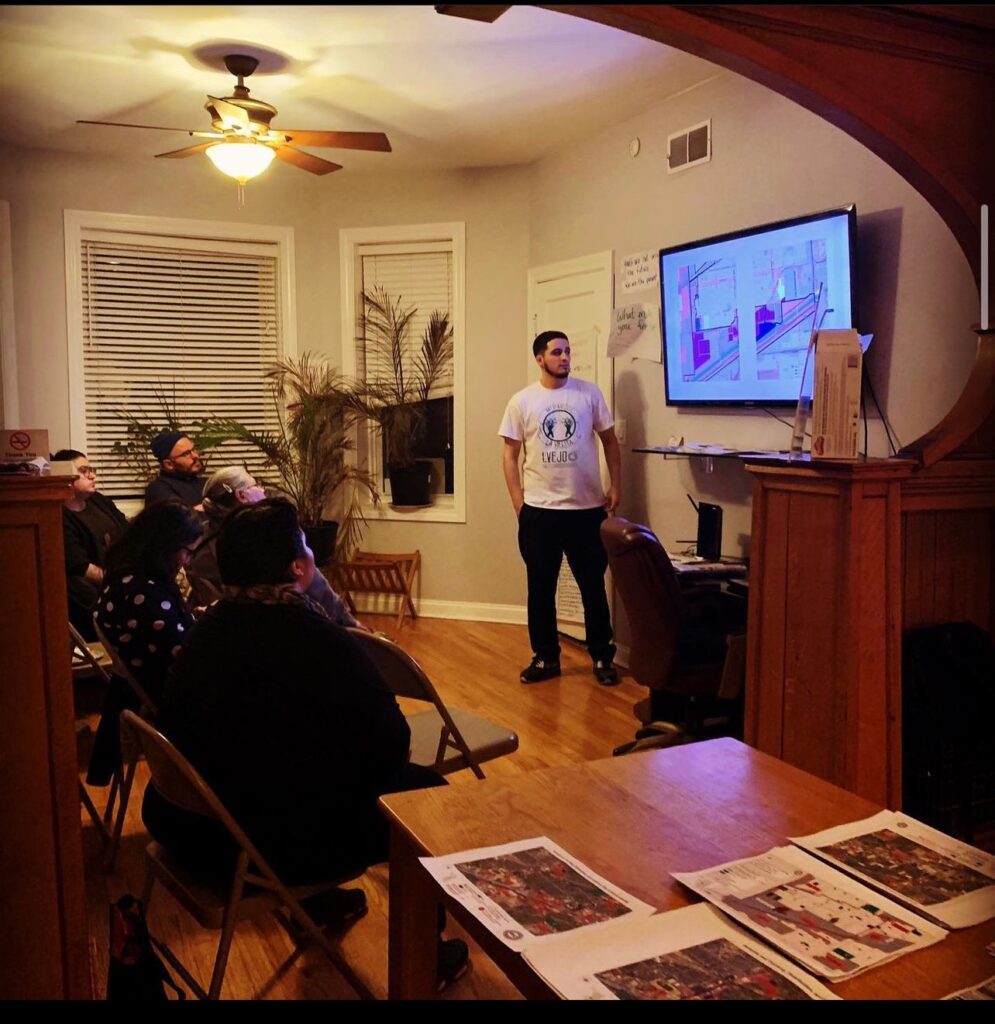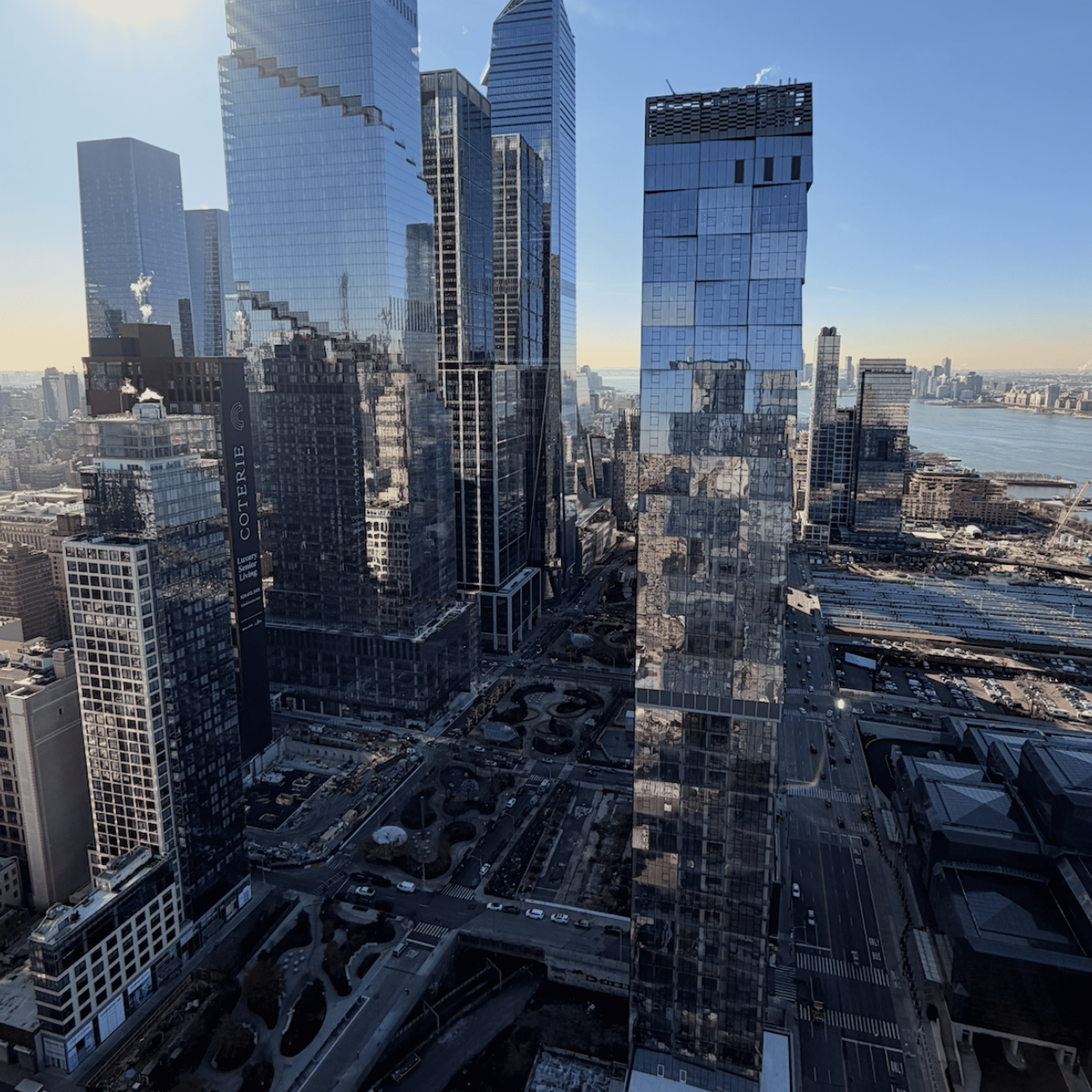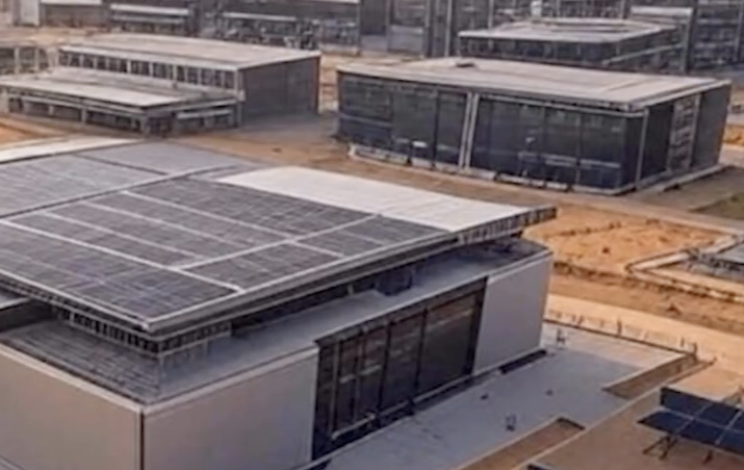(CHICAGO) — José Acosta-Córdova is a senior transportation policy analyst for the Little Village Environmental Justice Organization in Chicago. As spokesperson for the Neighbors for an Equitable Transition to Zero-Emissions, he urged Gov. J.B. Pritzker to adopt the Advanced Clean Truck and Heavy-Duty Omnibus rules to reduce air pollution associated with freight transportation. To date, seven states have adopted the Advanced Clean Truck rule and a few have adopted the Heavy-Duty Omnibus rule.
Acosta talked to The Click about the health implications residents face in Chicago and across Illinois due to pollution associated with freight transportation.
The Click: What are the negative impacts of freight in Illinois?
Acosta: The main one is definitely air pollution. The semi-trucks that move all of our goods are powered by diesel. So there’s a lot of emissions that come from these trucks. Those emissions have a negative impact on people’s respiratory and cardiovascular systems… [which] leads to a lot of health issues like asthma, heart disease, and diabetes. There are a lot of health issues associated with being exposed to particulate matter, which is one of the things that’s emitted from diesel. Premature death is also associated with air pollution. People are literally dying every year from being exposed to this stuff.
Other things like traffic congestion is also a major one… noise pollution and also the damage to infrastructure. Lastly is also the safety issue for pedestrians, for cyclists, and for other drivers. Having so many trucks on the road makes it dangerous for all other modes of transportation.
Where are those negative impacts most felt?
Those negative effects are mostly concentrated in Black and Latino communities because that’s where the majority of freight facilities are located. Then also, people of color disproportionately live next to highways. If you have all the freight facilities and all the highways mostly being adjacent to Black and Latino communities, we’re the ones that are dealing with the negative impacts of air pollution the most.
What is the economic importance of freight in Illinois?
We have 19 intermodal rail yards across the Chicago region, which is by far the most of any other part of the country. We are the only part of North America where six out of the seven Class I railroads converge, where the eastern railroads meet the western railroads. That’s why [Chicago and Illinois] are so important to the movement of goods, particularly within the country.
Intermodal rail yards are where the trains carry the containers from the seaports… they bring them to the rail yards, they transfer [the containers] onto the trucks, the trucks will take them to the local warehouse or distribution center where they get broken down, and then they’ll go out to the retailer where we as consumers purchase those goods. About 18 million containers come through Chicago’s area every year.
People do not think of Chicago as a port city, because we are not located along an ocean coast, and we don’t have a big container port, but we are a port city in terms of the movement of goods and how significant it is not only to Chicago’s economy, but how significant Chicago is to the U.S. economy.
How would Illinois be different if the state adopted the Advanced Clean Truck and Heavy-Duty Omnibus rules?
At the very least, we would deal with the air pollution issue, which is the most important and the most pressing issue because people are literally dying every day. Getting all these diesel trucks off the roads and replacing them with electric trucks is really crucial to having a system with fewer negative impacts.


